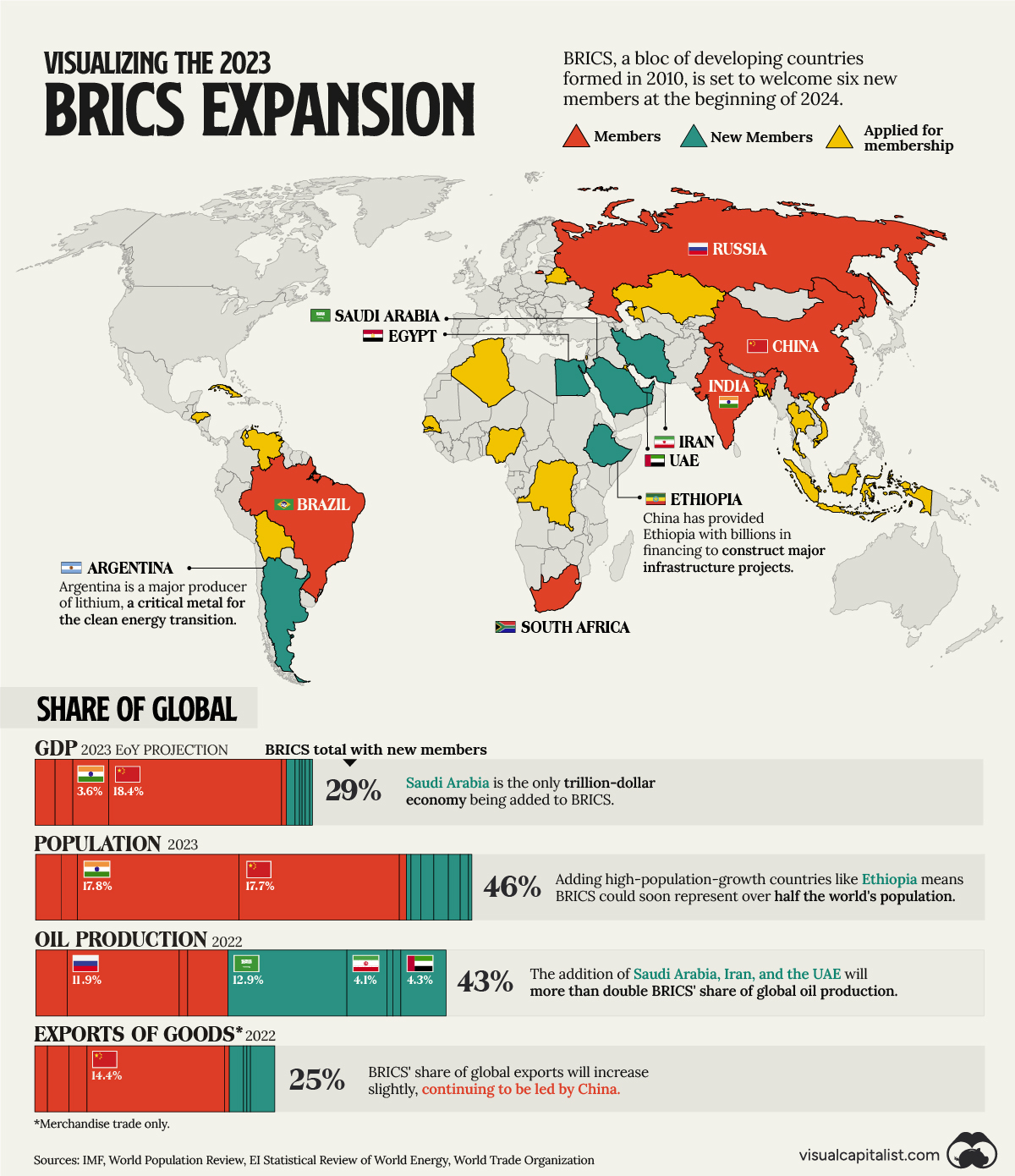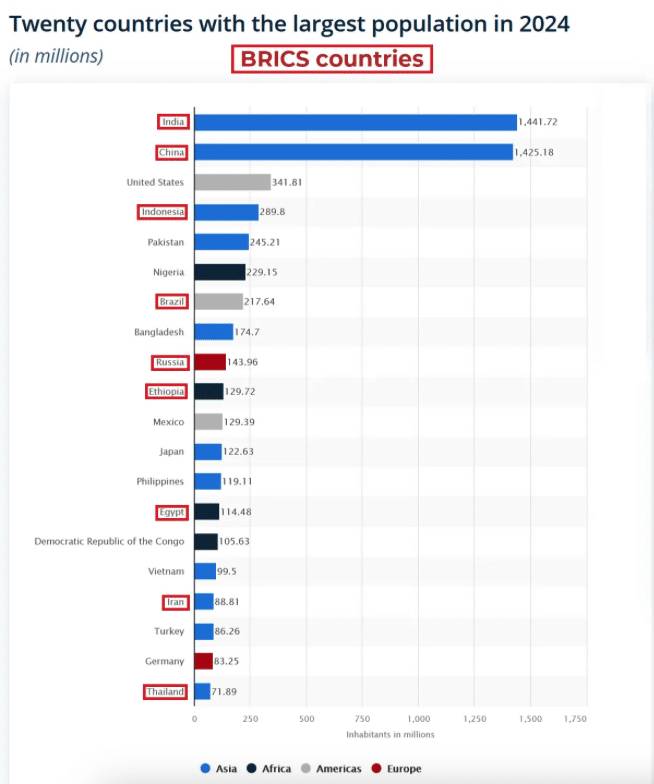
Ever feel like the global economy is shifting right before your eyes? You’re not wrong. The BRICS alliance—Brazil, Russia, India, China, and South Africa—is making waves, and China is leading the charge.
With its massive economic influence, China is redefining trade, investment, and power dynamics on the world stage. But what does this mean for the rest of the world?
Let’s break it down in simple terms and see how China’s rise within BRICS is changing everything.
What is BRICS?
BRICS is an economic alliance formed to challenge Western dominance in global trade and finance. These five nations represent about 27% of the world’s GDP and over 40% of the global population. Their goal? To create a fairer and more balanced global economy, with less reliance on Western financial institutions.
China’s Dominance in BRICS
A $19 Trillion Giant
Among the BRICS members, China is the clear economic leader. In 2023, China’s GDP hit approximately $19 trillion, accounting for nearly two-thirds of BRICS' total economic output. That’s more than Brazil, Russia, India, and South Africa combined.
Trade Supremacy
China’s trade with BRICS countries has skyrocketed, driven by:
Electronics & Machinery Exports: China sells advanced technology, from smartphones to industrial equipment.
Energy & Resources Imports: China relies on Russia and Brazil for oil, gas, and raw materials.
Manufacturing & Agriculture: The country imports food and agricultural products while exporting manufactured goods.
This trade relationship is not just beneficial—it’s transforming how BRICS members interact economically.
China’s Strategic Investments in BRICS
The Belt & Road Initiative (BRI)
China isn’t just trading; it’s building. Through the Belt and Road Initiative (BRI), China has invested billions in BRICS countries, funding infrastructure projects like:
Railways & Highways in Africa and South America
Smart Cities in India and Russia
Ports & Airports to enhance global connectivity
These projects don’t just benefit China—they help BRICS nations develop stronger economies and better infrastructure.
The New Development Bank (NDB)
BRICS has its own bank—the New Development Bank (NDB)—which was established in 2015. China is the biggest financial contributor, funding loans for sustainable development projects across member countries. This bank is designed to reduce reliance on Western financial systems like the IMF and World Bank.
Challenges Facing China & BRICS
While BRICS is growing, there are challenges:
Economic Dependence: Some members worry that China’s dominance could lead to economic imbalance within BRICS.
Geopolitical Tensions: Russia’s conflict with the West, India-China border disputes, and global economic uncertainties can impact BRICS’ stability.
Debt Concerns: Some critics argue that China’s massive investments could lead to debt dependency for smaller BRICS nations.
The Future of BRICS & China’s Role
Looking ahead, China’s leadership in BRICS is expected to continue shaping global trade. With discussions about adding new members (like Saudi Arabia and Argentina), BRICS could become an even bigger global powerhouse.
China is pushing for a shift from a US-dollar-dominated system to alternative currencies, possibly using digital currencies and local trade agreements to reshape international finance.
Conclusion
China’s growing influence within BRICS is changing how global economies operate. By leading in trade, investment, and infrastructure, China is positioning BRICS as a formidable competitor to Western financial systems. However, balancing power within the group will be crucial for long-term success.
What do you think about China’s role in BRICS? Is it a positive force for global development or a strategy for dominance?
Share your thoughts in the comments below! Stay tuned for more deep dives into global economic trends.



No comments yet
Be the first to share your thoughts!